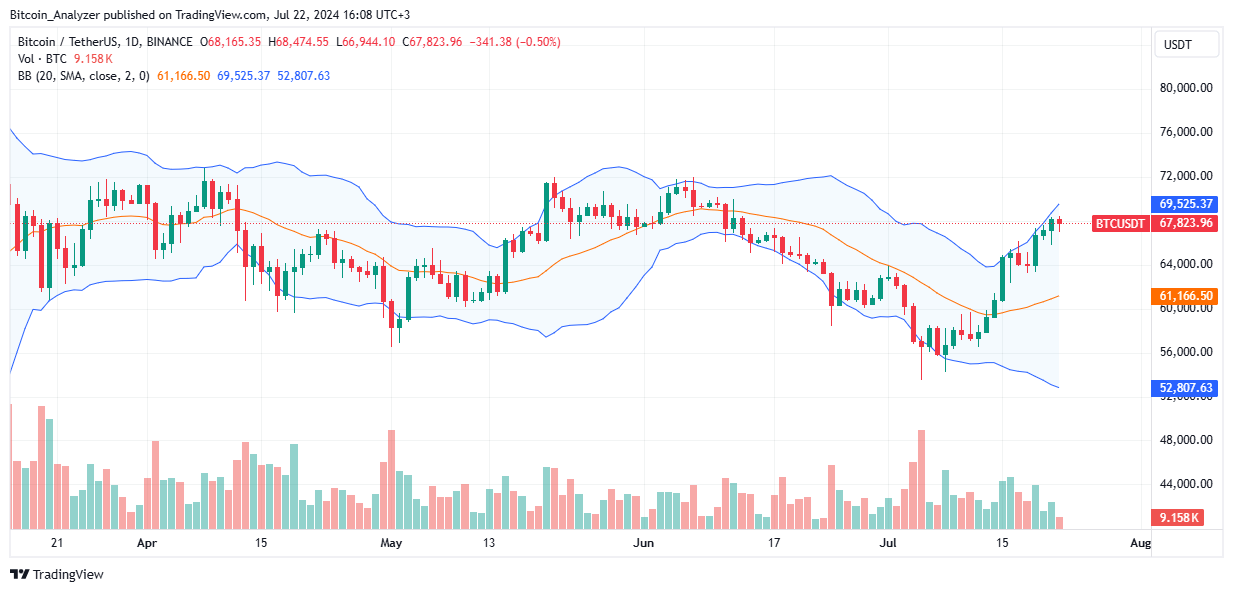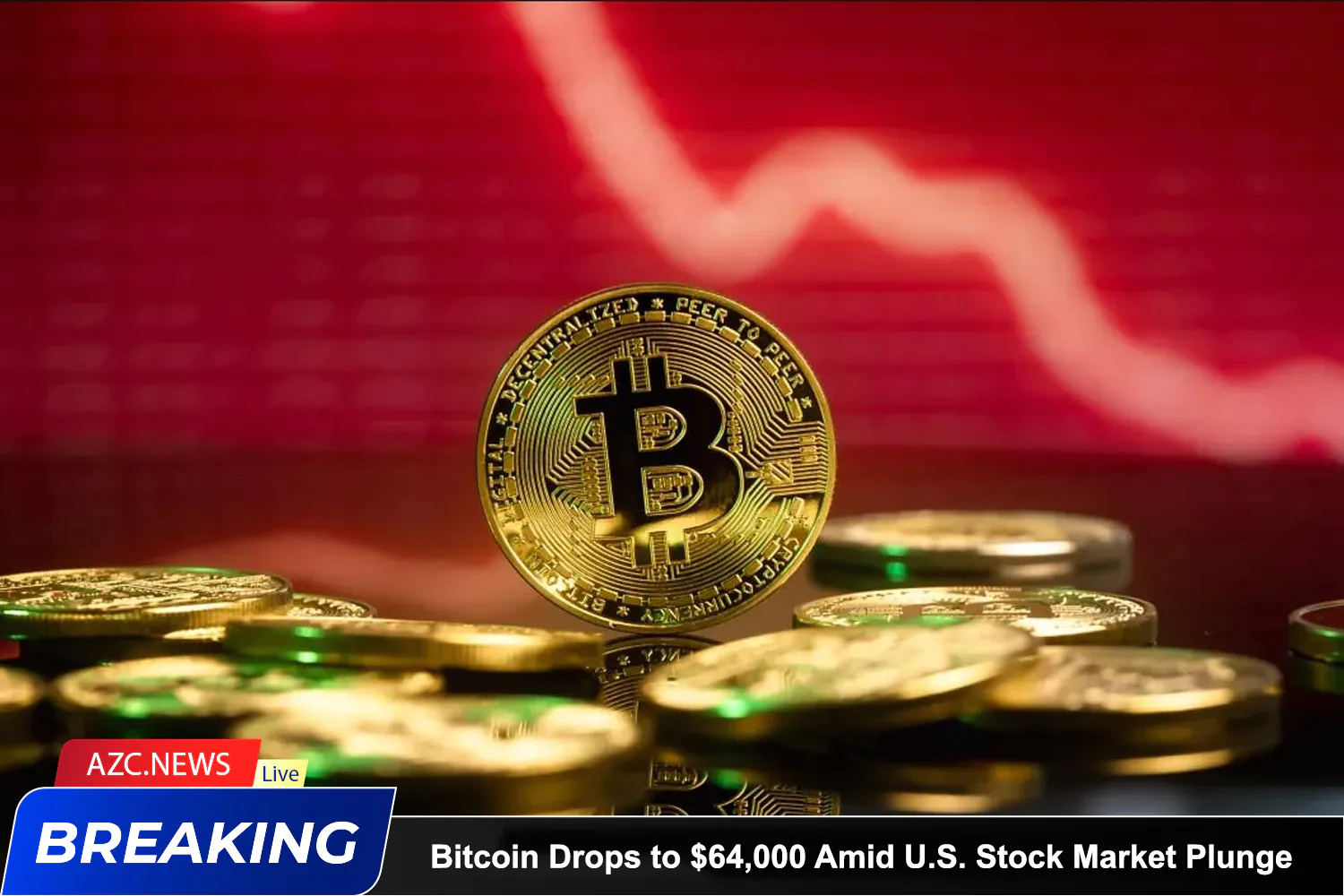Bitcoin has currently dropped to $63,700, marking a correction of about 3.6% from the $66,100 level seen on July 17. The S&P 500 index has declined by 2.6% over the past two days, testing the 5,523 mark on July 18. This adjustment has erased the gains of the previous two weeks, although there was notable buying activity in the final hours of trading following Taiwan Semiconductor Manufacturing Company (TSM) reporting earnings that exceeded market expectations.
The reasons behind the U.S. stock market
Investor sentiment has been negatively impacted, partially explaining Bitcoin’s decline on July 18. Understanding the reasons behind the U.S. stock market’s downturn is essential to determine whether cryptocurrencies will maintain their positive correlation.
Rising unemployment claims and economic concerns have contributed to the current market environment. Fears of escalating inflation due to unsustainable government debt may have short-term negative effects but could also create opportunities as investors seek scarce alternative assets. However, if investors perceive the economy, particularly the job market, to be deteriorating, traders are likely to seek safety in cash and short-term government bonds.
On July 18, the U.S. Department of Labor reported that continuing unemployment claims had risen to a seasonally adjusted 1.867 million for the week ending July 6, the highest level since November 2021.

This metric, which focuses on the number of people receiving benefits after their initial claim week, serves as a gauge for hiring. This data is particularly negative for the real estate market, posing risks to the financial sector.
Federal Reserve Chairman Jerome Powell addressed the U.S. Senate Banking Committee on July 9, stating that the commercial real estate sector presents significant risks, especially for smaller banks with concentrated exposure, according to CRE Daily. Powell emphasized the importance of banks honestly assessing and managing their risks, as the challenges in the commercial sector are expected to persist for years due to hybrid work arrangements.
Additionally, the minutes from the June FOMC meeting revealed that credit quality continued to deteriorate in April and May, particularly in the office, hotel, and retail sectors, with an increase in delinquency rates. This scenario partly explains the weakness in the banking sector on July 18, with JP Morgan (JPM) trading down 3.2%, Wells Fargo (WFC) down 2.8%, and Bank of America (BAC) down 2%.
Export Restrictions on Technology Could Impact the Market
Meanwhile, U.S.-listed tech stocks have been negatively impacted following Bloomberg’s report that the U.S. is examining rules to control technology exports, particularly affecting artificial intelligence. This move, aimed at limiting China’s advantages in chip manufacturing processes, could restrict billions of dollars in sales for these companies. Shares of Advanced Micro Devices (AMD) fell 3.1%, while ASML Holding (ASML) dropped 2%.
Jim Covello, head of equity research at Goldman Sachs, warned that the investment frenzy in artificial intelligence (AI) might lead to an economic bubble, according to Bloomberg. Covello pointed out that investments in AI have yielded modest returns, with Microsoft, Google, and Amazon contributing only 7% of cloud service sales growth attributed to AI. Nonetheless, Covello does not foresee this happening soon, as ongoing investments continue to drive stocks like Nvidia.

David Bahnsen, founder and chief investment officer at Bahnsen Group, echoed this warning, steering clear of major tech stocks due to fears of a repeat of the dot-com bubble and predicting significant investor losses if they do not divest in time. Bloomberg cited a survey by Lucidworks, revealing that less than half of the companies investing in AI have seen significant returns.
This analysis helps explain the 2.5% drop in Amazon (AMZN) shares, the 2.2% decline in Google (GOOGL) and Apple (AAPL) shares, and the resulting pessimism that spread to other markets, including cryptocurrencies.
 OMN
OMN  BTC
BTC  ETH
ETH  USDT
USDT  XRP
XRP  BNB
BNB  SOL
SOL  USDC
USDC  TRX
TRX  DOGE
DOGE 





